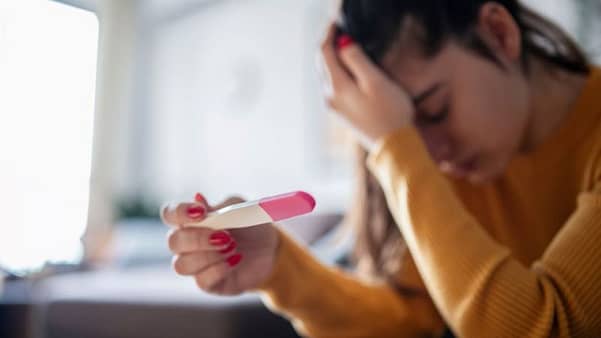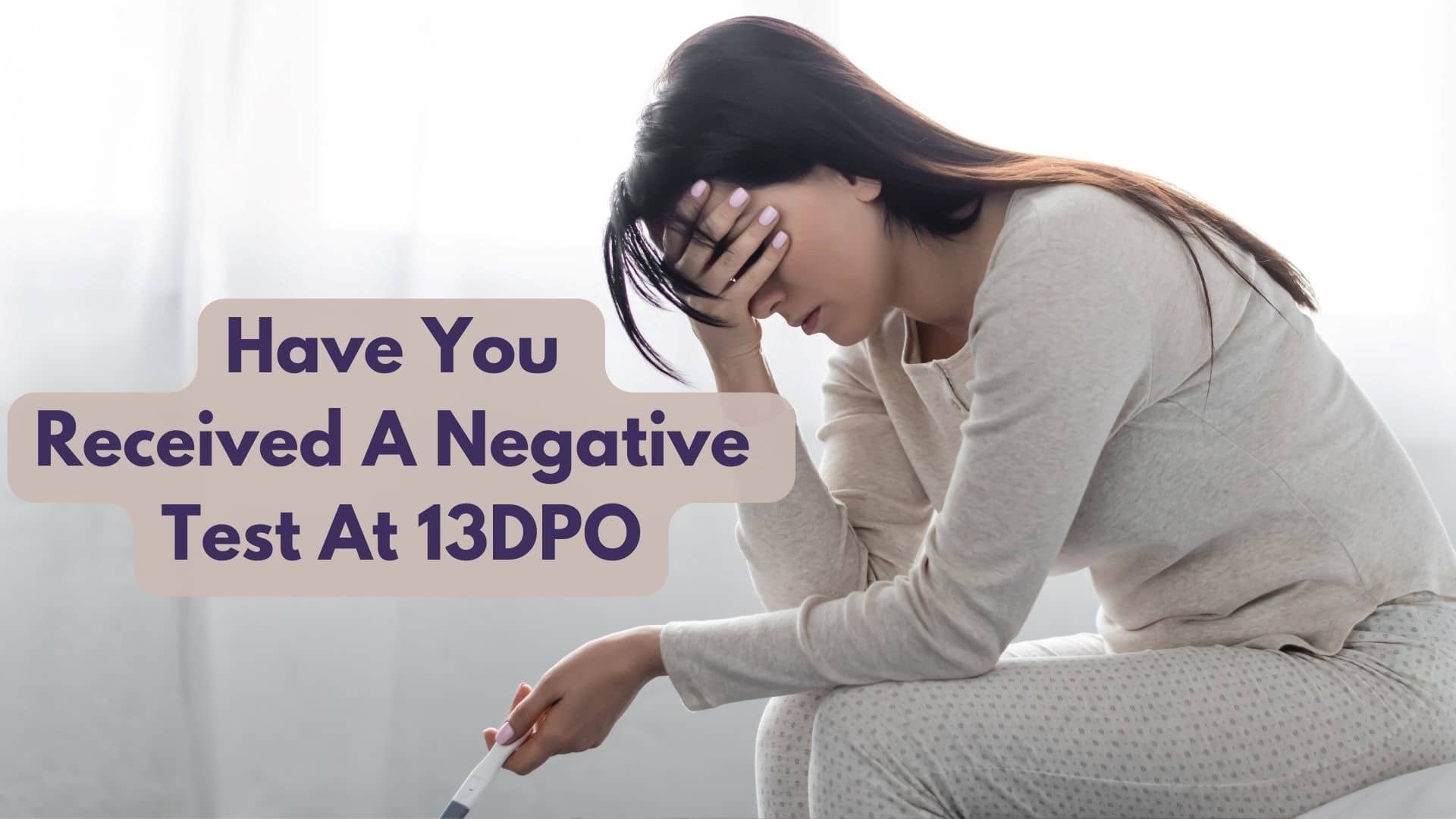Have you ever eagerly taken a pregnancy test at 13DPO (Days Past Ovulation), hoping for that much-anticipated positive result, only to be met with disappointment as it came back negative? You’re not alone. Many women experience this frustrating scenario, wondering what it means and if there is still hope for a positive outcome.
In this article, we will explore the reasons why you might receive a negative test at 13DPO, address common questions through a helpful FAQ section, and ultimately provide a conclusion to help you navigate this uncertain time.
Possible reasons for a negative test at 13DPO
Test sensitivity
One possible reason for a negative test at 13DPO is the sensitivity level of the pregnancy test you are using. Different pregnancy tests have varying levels of sensitivity, which determines when they can accurately detect the presence of the pregnancy hormone, human chorionic gonadotropin (HCG). If you are using a test with a lower sensitivity, it may not be able to detect the HCG levels in your urine at 13DPO, leading to a false negative result. It’s important to choose a reliable pregnancy test with a high sensitivity level to increase the chances of accurate detection.
Implantation timing
Another factor to consider is the timing of implantation. Implantation typically occurs around 6-12 days after fertilization, which can vary from woman to woman. If implantation happens later than expected, it may delay the release of HCG into your bloodstream and urine. As a result, a pregnancy test taken at 13DPO may not yet detect the presence of HCG, leading to a negative result. It’s important to remember that implantation timing can vary and may not always align with the estimated timeline.
HCG levels
HCG levels play a vital role in pregnancy testing. In the early stages of pregnancy, HCG levels increase rapidly, doubling every 48-72 hours. However, at 13DPO, HCG levels may still be relatively low for some women. If your HCG levels are below the detection threshold of the pregnancy test, it may result in a negative test result. It’s essential to keep in mind that HCG levels can vary widely among individuals, and a negative test at 13DPO does not necessarily mean you are not pregnant.
Testing too early
One common mistake that can lead to a negative test at 13DPO is testing too early. While it’s natural to feel impatient and eager to know if you are pregnant, testing too early can result in inaccurate results. At 13DPO, it may still be too early for some pregnancy tests to detect the presence of HCG. It’s important to wait until you have missed your period or the recommended time frame for accurate testing mentioned in the instructions of the pregnancy test.
Improper testing technique
The accuracy of a pregnancy test can also be influenced by the technique you use during testing. Following the instructions provided with the pregnancy test is crucial to ensure accurate results. Not following the instructions, such as not holding the test in your urine stream for long enough or misinterpreting the test results, can lead to false negatives. Make sure to carefully read and follow the instructions for your specific pregnancy test to ensure the most accurate results possible.

Factors to consider before testing
Understanding the menstrual cycle
Before starting the pregnancy testing process, it’s vital to have a good understanding of your menstrual cycle. Knowing the length of your typical cycle, the duration of your luteal phase, and the approximate date of ovulation can help you determine when it is appropriate to start testing for pregnancy. Tracking your menstrual cycle using a calendar or a fertility app can provide useful insights into your cycle’s regularity and help you identify potential issues or irregularities.
Knowing when to expect a positive test
In addition to understanding your menstrual cycle, it’s crucial to have realistic expectations about when you can expect a positive pregnancy test. While some women may receive positive results as early as 10-12 DPO, others may not receive a positive result until after their missed period. Knowing that there is variability in the timing of positive results can help prevent unnecessary anxiety and disappointment if you receive a negative test at 13DPO.
Managing expectations
Managing your expectations is essential when trying to conceive. Remember that not everyone gets pregnant immediately, and it’s normal for conception to take time. Avoid putting pressure on yourself and your partner, as stress can impact fertility and emotional well-being. Keep an open mind and try to maintain a positive outlook throughout the testing process, knowing that each cycle is an opportunity for conception.
Tips for accurate testing
Use a reliable pregnancy test
To ensure the most accurate results, it’s crucial to use a reliable pregnancy test. Look for tests that are FDA-approved and have high sensitivity levels to detect low Human Chorionic Gonadotropin (HCG) levels. Reading reviews and consulting with healthcare professionals or trusted sources can help guide you in choosing a reliable test that suits your needs and preferences.
Follow the instructions carefully
Properly following the instructions provided with the pregnancy test is crucial for accurate results. Each test may have slight variations in terms of the required urine concentration, testing timeframes, or result interpretation. Take the time to carefully read and follow the instructions to avoid any errors that might impact the accuracy of the test.
Test with the first-morning urine
For the most accurate results, it is generally recommended to test with the first-morning urine. This is because the concentration of HCG in the urine is typically higher in the morning, making it easier to detect. If you are unable to test in the morning, make sure to hold your urine for at least a few hours before testing to ensure a higher concentration of HCG.
Avoid excessive fluid intake before testing
Drinking excessive amounts of fluids before testing can dilute the concentration of HCG in your urine, potentially leading to a false negative result. Try to avoid excessive fluid intake for a few hours before testing to ensure the most accurate results possible.
Also Check: Signs Your Toddler Is Not Ready For A Bed?
Dealing with emotions and disappointment
Navigating feelings of frustration and anxiety
Receiving a negative test at 13DPO can stir up a range of emotions, including frustration and anxiety. It’s important to remember that fertility is influenced by a variety of factors, and conception may not happen immediately. Practice self-compassion and remind yourself that negative test results are not indicative of your worth or the likelihood of future success. Engage in activities that bring you joy and help alleviate stress, such as exercise, hobbies, or mindfulness practices.
Seeking support from loved ones
Facing negative test results can feel isolating, but it’s essential to seek support from loved ones. Share your thoughts and emotions with your partner, friends, or family who are understanding and supportive. Having someone to talk to can provide comfort and perspective, reminding you that you are not alone in your journey. Consider reaching out to online communities or support groups focused on fertility and trying to conceive, where you can find understanding and support from individuals going through similar experiences.
Exploring coping mechanisms
Coping with disappointment and negative test results can be challenging, but finding healthy coping mechanisms can help navigate these emotions. Engage in activities that bring you a sense of peace and relaxation, such as practicing yoga, meditation, journaling, or engaging in creative outlets. Remember to prioritize self-care and take breaks when needed to recharge emotionally and mentally.

Source: TheTechBrain AI
Frequently Asked Question (FAQs)
What does 13DPO mean?
DPO stands for “Days Past Ovulation.” It refers to the number of days that have passed since ovulation occurred. Counting DPO can help determine the best time to take a pregnancy test.
Can I still be pregnant if I test negative at 13DPO?
Yes, it is still possible to be pregnant even if you receive a negative test at 13DPO. False negatives can occur due to various factors, such as low HCG levels, test sensitivity, or testing too early. If you suspect you may be pregnant despite a negative test, it’s recommended to wait a few more days and retest or consult with a healthcare professional for further guidance.
Is it common to get a negative test at 13DPO?
Yes, it is relatively common to receive a negative test at 13DPO. Every woman’s HCG levels and implantation timing can vary, and not all pregnancy tests can accurately detect the presence of HCG at this early stage. It’s important to keep in mind that each woman’s journey is unique, and a negative test at 13DPO does not definitively indicate the absence of pregnancy.
When should I test again if I received a negative result at 13DPO?
If you received a negative test result at 13DPO and still have not gotten your period, it’s recommended to wait a few more days and test again. Waiting until after your missed period can increase the accuracy of the test. However, if you experience any concerning symptoms or if your period is significantly delayed, it is advisable to consult with a healthcare professional for further evaluation.
Conclusion
Understanding the variables at play in early pregnancy testing can help manage expectations and emotions. It’s important to remember that receiving a negative test at 13DPO does not rule out the possibility of pregnancy. Factors such as test sensitivity, implantation timing, HCG levels, testing too early, or improper testing technique can all contribute to a false negative result. Remember to consult a healthcare professional for personalized advice and support during your journey to pregnancy. Stay positive, practice self-care, and lean on your support system to navigate the emotional ups and downs along the way.
